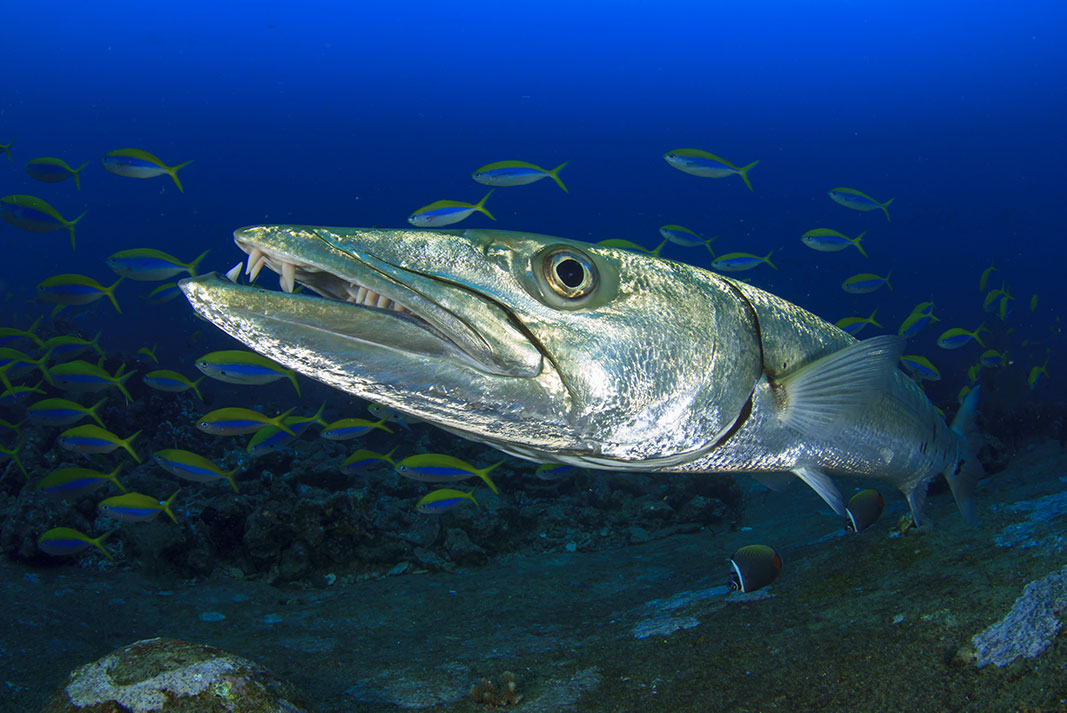
Warning: The true accounts you’re about to read might scare the fishing pants off you. In reality, the odds of facing a frightening wild animal are infinitesimal, but barracuda encounters are not impossible. A bit of caution, a little common sense and some luck keep most of us out of harm’s way. These accounts are not intended to discourage anyone from kayak fishing. Instead, the following stories serve as a healthy reminder that once you paddle away from the land, you’re no longer the top of the food chain.
Leaping fish can be bad news for anyone on the water. Anglers have been hurt and even killed by high-jumping eagle rays, narrow-barred mackerel, sturgeon and even impaled by the hard, narrow beak of frantically leaping needlefish. This encounter with a big, barreling barracuda in the Florida Keys shows how quickly things can go sideways.
A Barracuda Appears Up Ahead
In 2010, Karri Larson and her boyfriend, Michael Hinojosa, were kayaking in the Florida Keys. Hinojosa told CBS News they saw a giant barracuda coming in their direction. He recalls, “It was really moving fast and skipping across the water.” As the torpedo-shaped silver fish neared the tandem kayak, “it exploded on our left. Karri never saw it.”
The big ‘cuda was moving fast enough to knock Larson out of the kayak and, with its dagger-like teeth, rip a bloody hole in her side. The impact shattered a rib and punctured her lung. Hinojosa helped her back into the kayak and began calling for assistance.
As CBS News relates, the rescue wasn’t easy:
Getting to them would be no easy task in the Florida backwaters. Towboat owner Kevin Freestone volunteered to help search. He spoke to Hinojosa on the phone.
Freestone told CBS News, “He knew exactly what to tell me and he told me, he said, ‘You need to get here as quick as you can. You need to save a life today.’”
It had been about 30 minutes since the original 911 call, and time was running out.
Freestone explained, “We were going around the corner of this island. It’s all mangroves. We were gonna see them soon…all of a sudden, there it was—orange kayak.”
Larson was airlifted to Jackson Memorial Hospital in Miami for treatment. Thankfully, she survived extensive injuries caused by her barracuda encounter.
Barracudas Just Like to Jump
While people have a field day labeling such incidents as a cruel attack, there’s little likelihood any fish is intent on harming anyone. Instead, barracuda like to jump. They probably don’t consider any obstructions in their way. This doesn’t mean kayak anglers should avoid areas where barracuda may be, but the lesson does suggest staying alert is a good way to avoid an unpleasant encounter.
Still, no degree of awareness can avoid an incident when an angler is simply in the wrong place at the wrong time, as Karri Larson can attest.
In addition to encounters with kayakers, large barracuda have been implicated in cases of ciguatera food poisoning, making them inedible. | Feature photo: Shutterstock